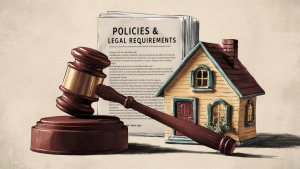
Airbnb Guest: A Host’s Guide to a Memorable Start
Facebook Twitter LinkedIn Reddit Email WhatsApp Welcome Your First Guest on Airbnb: A Host’s Guide to a Memorable Start Welcoming your first guest on Airbnb
If you’re considering hosting on Airbnb, understanding the platform’s policies and legal requirements is crucial. This knowledge ensures your success as a host and keeps you compliant with local laws. In this blog, we’ll break down the essentials every Airbnb host should know.
Airbnb policies are designed to protect hosts, guests, and the platform itself. Familiarizing yourself with these guidelines helps you avoid misunderstandings, penalties, or even suspension of your listing.
Transitioning to a professional hosting approach starts with understanding Airbnb’s Terms of Service, including its non-discrimination policy, refund policies, and safety standards.

Hosting often requires adherence to local laws and regulations. Skipping this step can lead to hefty fines or legal complications.

Following Airbnb policies and legal requirements does more than protect you from penalties. It also enhances your reputation as a host, which can lead to higher guest ratings and more bookings.
If you don’t own a home, buy one. If you own a home, buy another one. If you own two homes buy a third. And lend your relatives the money to buy a home.
John Paulson Tweet
Understanding and adhering to Airbnb policies and legal requirements is essential for a successful hosting journey. By staying informed and proactive, you can provide a seamless experience for your guests while safeguarding your property and reputation.
Take Action Today: Review Airbnb’s policies and check your local regulations to ensure you’re fully compliant.

Facebook Twitter LinkedIn Reddit Email WhatsApp Welcome Your First Guest on Airbnb: A Host’s Guide to a Memorable Start Welcoming your first guest on Airbnb

Facebook Twitter LinkedIn Reddit Email WhatsApp Mastering Airbnb Policies and Legal Requirements: A Guide for Hosts If you’re considering hosting on Airbnb, understanding the platform’s

Facebook Twitter LinkedIn Reddit Email WhatsApp The Anatomy of a Perfect Airbnb Listing Creating an irresistible Airbnb listing is both an art and a science.